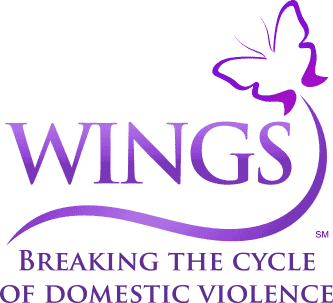Human Trafficking and the Similarities to Domestic Violence
- Posted by Sarah Swiston
- On January 5, 2026
- Chicago, chicago metropolitan area, Chicago suburbs, Domestic Violence, domestic violence agency, domestic violence organization, DV agency, End Domestic Violence, Human Trafficking, Human Trafficking and Domestic Violence, Human Trafficking Awareness month, January Human Trafficking Awareness Month, non-profit, non-profit agencies, northwest chicago, Trafficking and DV, Trafficking Awareness, Trafficking Awareness month, WINGS, WINGS Program
January is Human Trafficking Awareness month. Human trafficking is often a hidden crime as victims rarely come forward to seek help due to language barriers, fear of traffickers or fear of law enforcement. Over the years, WINGS has served human trafficking survivors through the agency’s Safe Houses. Learn more about human trafficking and the similarities to domestic violence.
According to United Nations Office on Drugs and Crime’s 2024 report, 61% of detected trafficking victims were female. Women are the highest targeted group: 39% were women, 23% were men, 22% were girls, and 16% were boys.
What is Human Trafficking?
 Human trafficking is a form of modern-day slavery that includes both labor and sex trafficking. It involves the use of force, fraud, or coercion to obtain some type of labor.
Human trafficking is a form of modern-day slavery that includes both labor and sex trafficking. It involves the use of force, fraud, or coercion to obtain some type of labor.
Traffickers often target victims with:
- Low self-esteem
- High risk of running away from home
- Low income
- Language barriers
- Substance abuse problems
- Desperate life circumstances
How Do Traffickers Lure Victims?
 Trafficking victims often know their recruiters. A trafficker can be anyone exerting control over a person. Traffickers can be an intimate partner, father, mother, brother, coach, uncle, or a teacher. Sometimes the trafficker is a smuggler bringing them into the country. A trafficker can be any gender or ethnicity.
Trafficking victims often know their recruiters. A trafficker can be anyone exerting control over a person. Traffickers can be an intimate partner, father, mother, brother, coach, uncle, or a teacher. Sometimes the trafficker is a smuggler bringing them into the country. A trafficker can be any gender or ethnicity.
Traffickers Use Tactics:
- Promises of a stable relationship
- Pretending to love the victim’s child / Saying they want to be a family
- Promise a stable job
- If the victim is an immigrant:
- Promise citizenship
- Protection from law enforcement
Similarities to Domestic Violence
 Traffickers often keep victims under their control by similar means to domestic violence abusers:
Traffickers often keep victims under their control by similar means to domestic violence abusers:
- Threats of violence or death to them or their loved ones
- Physical, emotional, and psychological abuse
- Threats of deportation
- Blackmail
- Financial Control
- Providing drugs to the victim
Both traffickers and domestic violence abusers often heavily monitor the survivor.
A survivor of human trafficking may not see themselves as a victim, just as a survivor of domestic violence may not see themselves as a victim.
Warning Signs of Human Trafficking
Victims often:
- A
 re not free to make their own decisions
re not free to make their own decisions
- Can you leave your job if you want to? Can you come and go as you please?
- Are unpaid, paid very little or only in tips
- Are working excessive and unusual hours
- Do you live with your employer? Where do you sleep and eat?
- Owe a large debt and are unable to pay it off
- Are fearful, anxious, depressed, submissive and avoid eye contact
- Has your family been threatened?
- Show signs of physical harm in various stages of healing
- Have you been hurt or threatened to hurt if you tried to leave?
- Have few or no personal possessions
- Are not in control of their own money and or ID
- Do you have your passport/identification? Who has it?
- Are not allowed to speak for themselves
- Have numerous inconsistencies in their stories
- Are unable to clarify where they are and where they came from
- Are accompanied by an overbearing, better dressed person
Important Resources:
The Hotline is equipped to handle calls from all regions of the United States from a wide-range of callers including, but not limited to: potential trafficking victims, community members, law enforcement, medical professionals, legal professionals, service providers, researchers, students, and policymakers.
- Find local anti-trafficking organization and programs in your community:
- Learn more and raise awareness
- Ways to Help WINGS Domestic Violence Survivors



0 Comments